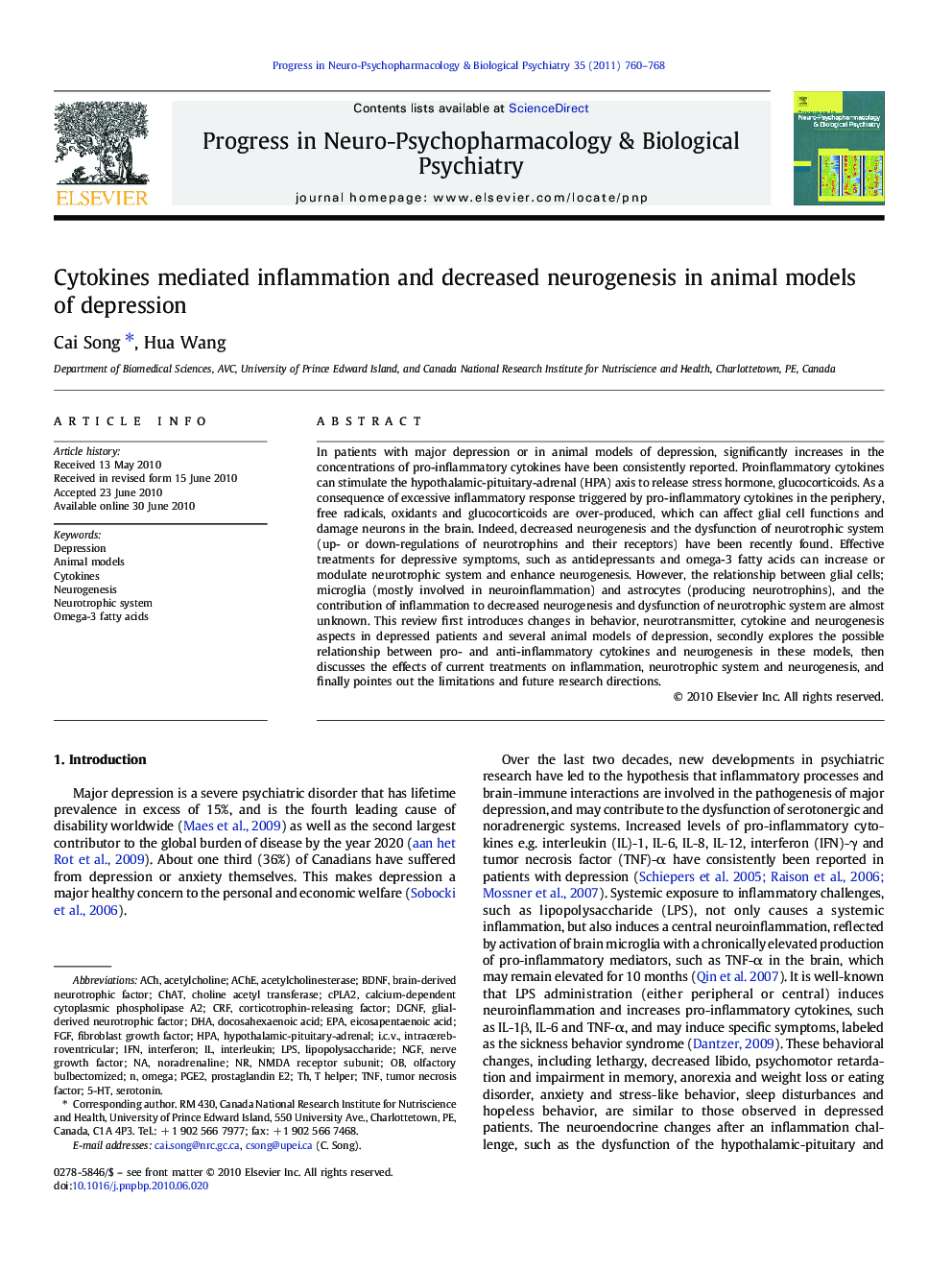| Article ID | Journal | Published Year | Pages | File Type |
|---|---|---|---|---|
| 2565472 | Progress in Neuro-Psychopharmacology and Biological Psychiatry | 2011 | 9 Pages |
In patients with major depression or in animal models of depression, significantly increases in the concentrations of pro-inflammatory cytokines have been consistently reported. Proinflammatory cytokines can stimulate the hypothalamic-pituitary-adrenal (HPA) axis to release stress hormone, glucocorticoids. As a consequence of excessive inflammatory response triggered by pro-inflammatory cytokines in the periphery, free radicals, oxidants and glucocorticoids are over-produced, which can affect glial cell functions and damage neurons in the brain. Indeed, decreased neurogenesis and the dysfunction of neurotrophic system (up- or down-regulations of neurotrophins and their receptors) have been recently found. Effective treatments for depressive symptoms, such as antidepressants and omega-3 fatty acids can increase or modulate neurotrophic system and enhance neurogenesis. However, the relationship between glial cells; microglia (mostly involved in neuroinflammation) and astrocytes (producing neurotrophins), and the contribution of inflammation to decreased neurogenesis and dysfunction of neurotrophic system are almost unknown. This review first introduces changes in behavior, neurotransmitter, cytokine and neurogenesis aspects in depressed patients and several animal models of depression, secondly explores the possible relationship between pro- and anti-inflammatory cytokines and neurogenesis in these models, then discusses the effects of current treatments on inflammation, neurotrophic system and neurogenesis, and finally pointes out the limitations and future research directions.
